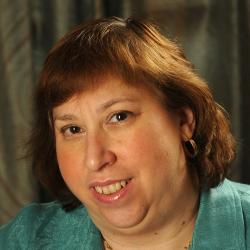Last week, the U.S. Supreme Court heard arguments on the constitutionality of a 2007 Massachusetts law requiring a 35-foot buffer zone around reproductive health clinic entrances. The court last week also declined to hear an appeal from Arizona officials seeking to revive a 2012 state law that barred most abortions after 20 weeks of pregnancy. And in North Carolina, a federal judge declared unconstitutional the state’s ultrasound requirement for women seeking abortions.
As the United States marks the 41st anniversary of the Supreme Court’s Roe v. Wade ruling legalizing abortion, challenges to the law continue. Last year, 39 states enacted 141 provisions concerning reproductive rights, according to the Guttmacher Institute. Seventy provisions in 22 states sought to limit access to abortion services. From 2011 to 2013, 205 abortion restrictions were enacted, compared to 189 from 2001 to 2010, according to Guttmacher.
“It appears that women continually are targets at the state and federal level. That does not seem to be going away,” said Betty DeFazio, executive director of the Action Fund of Planned Parenthood of Central and Western New York.
DeFazio and her colleagues will have their hands full this year as they track federal- and state-level challenges to laws concerning abortion and contraception. “More than half of American women of reproductive age now live in states where access to abortion is restricted in some way,” DeFazio said. “In the last few months, we’ve seen where politicians in other states have tried to ram through abortion restrictions the public overwhelmingly opposes.”
Planned Parenthood supporters will be in Albany Monday, Jan. 27, for Family Planning Advocates Day of Action. They will focus on pushing, for the second year, the Women’s Equality Act. The 10-point law aims to strengthen New York’s laws against sexual harassment, human trafficking, domestic violence, equal pay and abortion rights. The bill failed last year as abortion opponents argued the law would expand access to abortion, while supporters point out the language only codifies into state law the guarantees of Roe v. Wade.
DeFazio said the act encompasses many issues important to both women and men: care of family, pay equity, abortion, domestic violence, human trafficking, domestic violence. “It’s about all those things that women face at work, home and in the doctor’s office,” she said.
Planned Parenthood will also be watching congressional races. Rep. Dan Maffei (D-Syracuse), a strong supporter of abortion rights, already faces several potential Republican opponents.
In addition, as of Jan. 1, Planned Parenthood of the Rochester/Syracuse Region merged with Planned Parenthood of Western New York. The merger doubled the agency’s size, increasing its geographic reach from 11 to 18 counties.
“We’re a stronger organization for it,” DeFazio said. “This is a rapidly changing health care environment. We made this move so we could do it in a planned way.”
For more News like “Pro-choice Challenges Continue” – CLICK HERE



